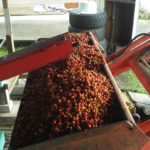A recent University of Hawaiʻi survey revealed that Hawaiian farmers 45 years old or younger are facing unprecedented mental stress. According to the survey, 48% of farmers have experienced depression, and 14% struggled with suicidal thoughts. This is almost two times higher than Hawaiʻi’s general population, and 17% higher than CDC’s 2021 report on public health workers.
These findings were completed by researchers at the University of Hawaiʻi Manoa’s College of Tropical Agriculture and Human Resources (CTAHR).
CTAHR researchers currently have several programs underway to address farmers’ needs, including a program to focus on the relational components of health and wellbeing. The Ag Mental Health Mentors program aims to educate and provide concrete tools to peers, family members, and neighbors to provide care and support, and to feel confident in initiating “talk story” about mental health.
While general uncertainty and COVID topped the list of stressors, farm production, financial worries, pests/invasive species also ranked highly.
“This study validated a lot of what we’ve already observed in the field, but also bore a bumper crop of details and gems that will really help us serve our local ag workers,” said Thao Le, principal investigator of the study and director of the “Seeds of Wellbeing” (SOW) project in a press release.
The research team currently has several publications under peer review expected to be published in early 2023. The extension team, meanwhile, continues to offer workshops to address the identified stressors from the survey.
SOW has also produced a series of video and audio podcasts, with more than 1400 downloads, mental health prevention guides specific to farmers called Cool Mind Main Thing, and a brief media campaign to increase the public’s respect and appreciation for farmers and ranchers – Malama the Farmer.
The SOW project is funded by USDA and HDOA and in partnership with other organizations such as Hawaiʻi Farmers Union United, Hawaiʻi Farm Bureau, Pacific Gateway Center, GoFarm, and Oʻahu Resource Conservation & Development Council.
